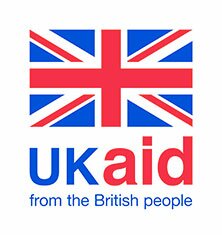Resource centre
Towards shock-responsive social protection systems: lessons from the COVID-19 response in Bangladesh
This policy brief presents the key findings of the Bangladesh country report, exploring the social protection response to COVID-19 from the Government of Bangladesh. Considering factors that have both helped and hindered the effectiveness of policy responses at various levels, the brief presents recommendations for improving preparedness and timeliness in practice, as well as suggests gender and social inclusion considerations for future responses.
Towards shock-responsive social protection systems: lessons from the COVID-19 response in Bangladesh
The COVID-19 crisis is likely to have a staggering impact on poverty in Bangladesh. This report documents the social protection responses by the Government of Bangladesh to mitigate the impact of the pandemic on vulnerable populations. Analysing factors that enabled and constrained the effectiveness of various responses both at policy and operational levels, the study finds that the quick policy-level actions were undermined by lack of preparedness in terms of targeting approach, information systems and accountability mechanisms. Finally, the report assesses the extent to which these measures were designed to achieve the desired outcomes in terms of coverage, adequacy, coverage, adequacy, comprehensiveness, timeliness, and gender and social inclusion considerations.
Towards shock-responsive social protection systems: lessons from the COVID-19 response in Bangladesh- Estimates from the microsimulation
This report presents the methodology and results of a microsimulation based on a partial equilibrium modelling framework using nationally representative household-level data for Bangladesh. The findings include an estimate of the potential impact of COVID-19 on poverty in the country based on a model that assumes heterogeneity of impact across individuals and households depending on the type and sector of employment. Moreover, the model is used to assess the effectiveness, coverage, and adequacy of the social protection response to COVID-19. The microsimulation results complement a larger Bangladesh country case study that documents the way in which social protection programmes, processes, and delivery systems have been used to respond to the COVID-19 crisis.
Conceptual framework for studying social protection responses to COVID-19
In response to the COVID-19 pandemic, more than 200 countries/territories have expanded and adapted their social protection systems to mitigate the economic impact of the pandemic. Maintains is conducting a cross-country study to provide an operational assessment of these social protection responses using the conceptual framework described in this working paper.
Authored by Rodolfo Beazley, with Alexandra Doyle, Madhumitha Hebbar, Karin Seyfert, and Ludovico Carraro
All Maintains evidence and articles relating to COVID-19 can be found here.






